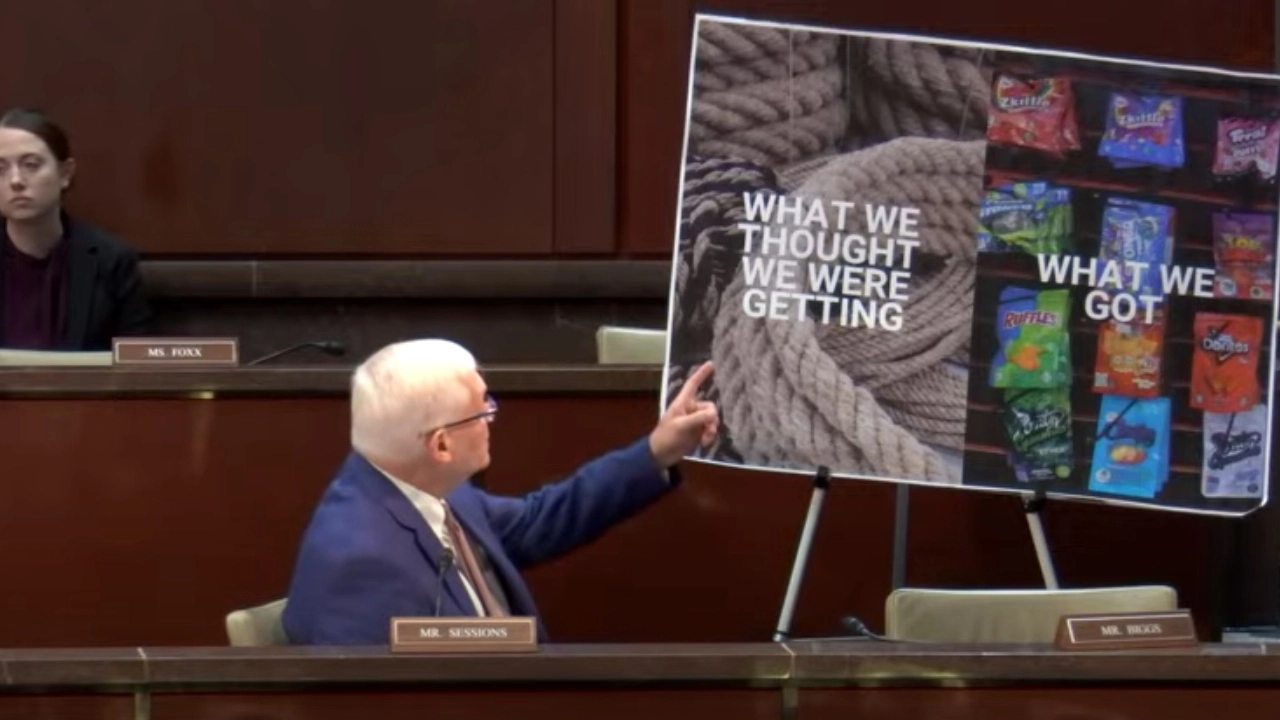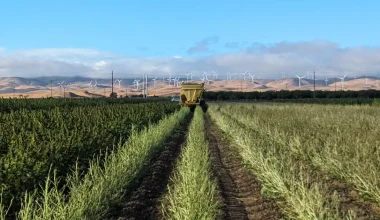
(This is a contributed guest column. To be considered as an MJBizDaily guest columnist, please submit your request here.)
There’s a strange irony playing out in Washington, D.C.
Even as major alcohol corporations such as the Boston Beer Company and retail giants including Target and Circle K bet heavily on hemp-derived THC beverages, a coordinated political effort is underway to ban the very products they’re rushing to sell.
In Washington, D.C., a loophole in federal law exploited by an anti-cannabis Maryland congressman is being used to crack down on small, local hemp shops.
Simultaneously, after a redefinition of hemp under federal law was thwarted at the last minute over the summer, rumors of a federal spending bill that would kill the industry overnight swirl even amid the ongoing government shutdown.
Despite the claims of protecting children from harm and the evils of sketchy products peddled by unscrupulous fly-by-night merchants, the anti-hemp THC hysteria isn’t a grassroots movement for public safety.
It’s a calculated act of anti-competitive protectionism and a textbook case of regulatory capture.
The cannabis industry’s Farm Bill fears
The 2018 Farm Bill, which legalized hemp production nationwide and established a legal standard for differentiating marijuana from hemp, had an unintended (or perhaps inevitable) consequence: It legalized products containing hemp-derived THC.
Sensing opportunity – and realizing that many Americans lacked access to regulated cannabis products – thousands of small businesses and entrepreneurs built a multi-billion-dollar industry from scratch. In a sign the market is maturing, operators big and small are competing and innovating, introducing new products like functional seltzers, powdered drink sticks and more.
The runaway success of this new market demonstrated a very real consumer demand, particularly in states where state-licensed cannabis remains either illegal, inaccessible, or absurdly expensive. In Texas alone, the legal hemp market is estimated to be worth $5.5 billion.
For years, existing state-licensed cannabis corporations – the marijuana multistate operators – that spent millions lobbying in an effort to guard their protected share of limited-license markets ignored hemp.
But now that it’s a proven, multi-billion-dollar market, the regulated cannabis industry sees hemp as a threat.
Hemp beverages realize many major companies’ dream of cannabis as a consumer-packaged good (CPG). Giants in the space are entering the ring and acquiring hemp beverage companies or launching their own product lines. They see the future.
And that future, for them, does not include the thousands of small competitors that built the hemp industry.
Why lobby for a free market when you can just lobby to eliminate your competition?
The manufactured crisis of hemp-derived THC
The “crisis” of hemp-derived THC, as it’s being framed by state attorneys general and certain members of Congress, is a manufactured panic.
It’s designed to justify new laws like California’s blanket ban on hemp-derived THC that do one thing: clear the field for the big players.
For more than a year, lobbyists representing the MSOs and their new corporate allies have been urging lawmakers to change the Farm Bill’s definition of hemp, effectively making their smaller competitors’ products illegal. Kentucky Sen. Mitch McConnell, the 2018 Farm Bill’s once-proud chief author, now wants the closure of the so-called loophole to be the last act of his stories political career.
But this maneuvering in D.C. isn’t a safety measure; it’s a political hit job. It’s a way for big companies to pull the ladder up behind them.
They are embracing the hemp beverage market with one hand while paying lobbyists to strangle it with the other.
The hypocrisy is stunning. The demand for these products was created by the failure of the state-licensed cannabis model. By limiting licenses to a hand-picked few, states created artificial scarcity and sky-high prices, pushing consumers to seek legal, accessible alternatives. Hemp filled that void.
Another federal cannabis prohibition isn’t the answer
If we want to address this, the answer isn’t a new prohibition. The answer is to dismantle the protectionist state-level systems. A free and open market for all cannabis products would see the demand for hemp-derived alternatives evaporate overnight.
But the incumbent licensees don’t want a free market. They want a cartel. And with the help of new corporate giants, they’re trying to use the power of Congress to get it.
Lou Rinaldi is a Connecticut-based advocate who has been working since 2019 to improve medical cannabis patient outcomes through common sense, populist policy and education of elected officials and public servants.
Medical Disclaimer:
The information provided in these blog posts is intended for general informational and educational purposes only. It is not a substitute for professional medical advice, diagnosis, or treatment. Always seek the advice of your physician or other qualified healthcare provider with any questions you may have regarding a medical condition. The use of any information provided in these blog posts is solely at your own risk. The authors and the website do not recommend or endorse any specific products, treatments, or procedures mentioned. Reliance on any information in these blog posts is solely at your own discretion.





